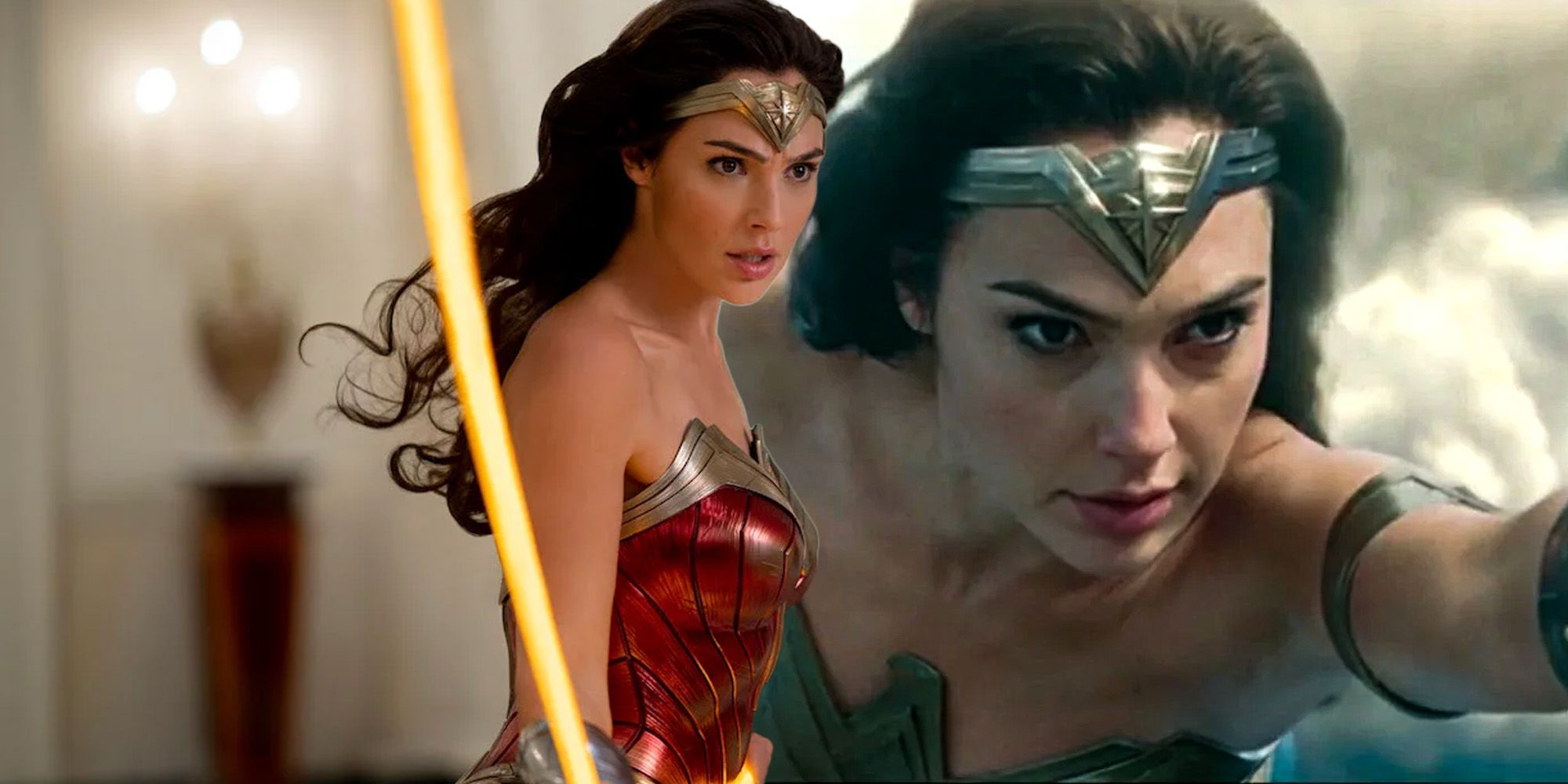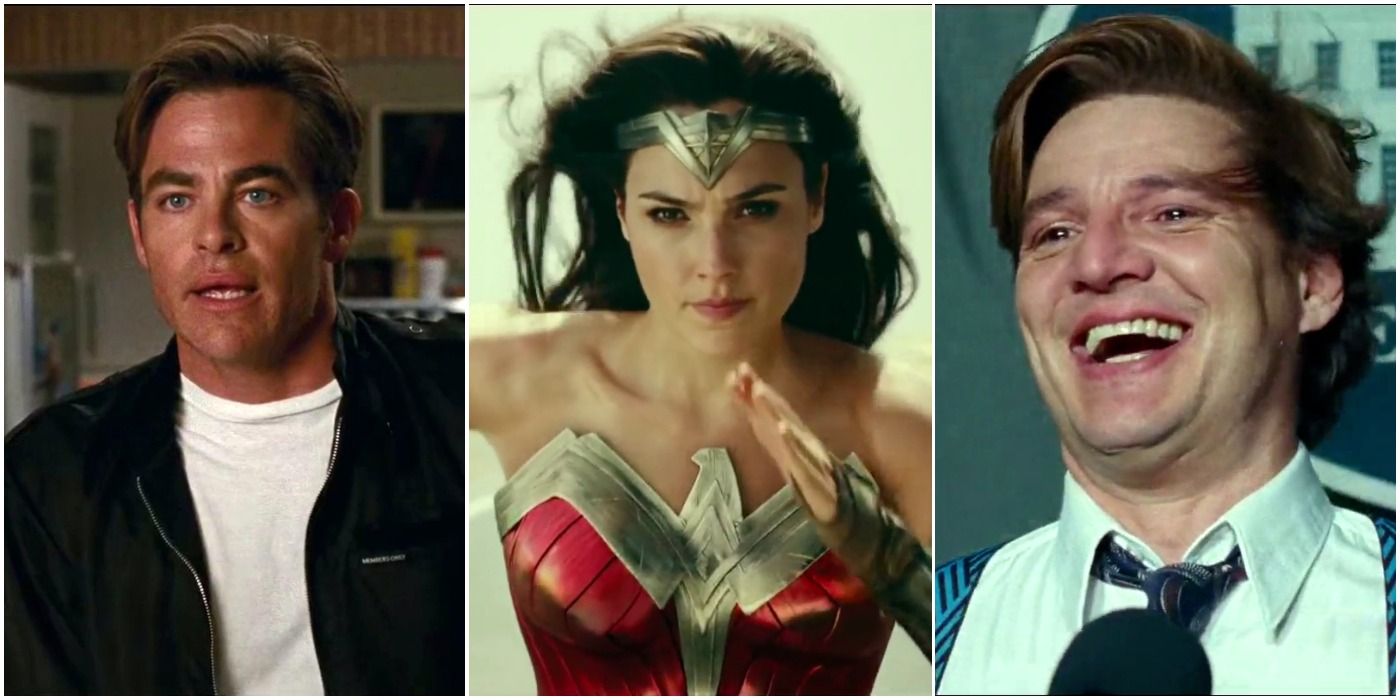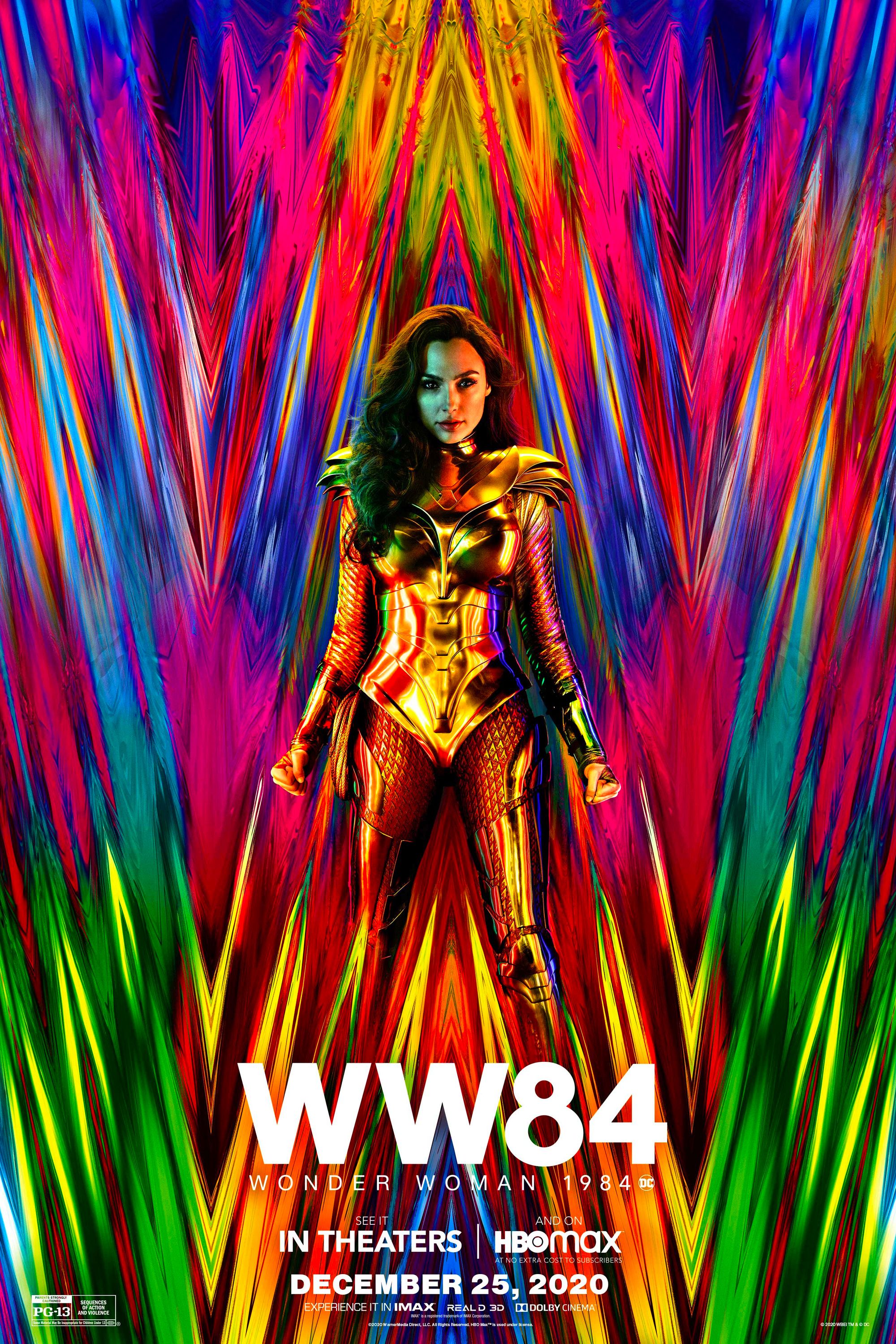
Respected Critics Are Coming To Wonder Woman 1984’s Defense – And I’m Here For It
Summary
- The harsh criticism towards Wonder Woman 1984 was overblown, lacking context and nuance.
- The streaming release impacted viewer perceptions, highlighting the shift in theatrical trends due to the pandemic.
- The controversy surrounding the movie misunderstood its plot, with the Monkey’s Paw storyline raising moral issues that were actively explored.
It’s time to admit that Wonder Woman 1984‘s critical reception was way too harsh. Even now, 4 years on, Patty Jenkins’ period-set DCEU sequel attracts the kind of criticism traditionally reserved for the bottom rung of turkeys, flops, and theatrical busts, and it’s a little uncalled for. Was Wonder Woman 1984 a perfect movie? No. It has some pretty glaring flaws, and held up against Wonder Woman, it is weaker, but the level of vitriol fired at it since release has been uncomfortable, frankly.
That reactions were extreme is perhaps unsurprising. There has been an increasing shift away from assessing movies for what they are, or for the individual experiences they offer, towards bemoaning what they aren’t or how they stack up to the increasing number of sprawling shared universes. Nuance has been replaced with a race to declare everything either the best or the worst release, with gleeful mob reactions enjoying Madame Web‘s quality almost as much as they enjoyed No Way Home‘s at the other end of the spectrum.
The DCEU came with its own elevated circumstances that made all of that worse for Wonder Woman 1984 (and pretty much every DCEU movie, in fact). The narrative had already been established by this point that the DCEU was a “lame duck”, with every successful exception ignored as inconvenient context. Wonder Woman 1984 also came after Birds Of Prey and countless bad faith hot takes on its wokeness, which hardly helped. But it was never the movie its criticism suggested, and it deserves another look.
Related
Every Upcoming DC Movie In 2024 And Beyond
Here’s every new DC movie confirmed as in development by WB for 2024 and onwards, including release dates and where they belong in the franchise.
Wonder Woman 1984 Is Sparking Yet More Online Debate
Social media’s current landscape has been taken over by a very specific type of engagement farming: someone will post “say something good about…” and plug in a controversial or widely panned movie (particularly comic book movies). Or, as with the case of one post that’s taken off, it will be a more straightforward invitation to offer hot takes on some low-hanging fruit.
The latest notable example is “what went wrong with Wonder Woman 1984?” – not an unfair question, given the DC sequel’s critical reception and massively different box office performance compared to its predecessor – but the replies are mostly as you’d expect. However, in among the usual barbs, two respected critics have leaped to Wonder Woman 1984‘s defense, offering nuanced takes on the 4-year-old release.
Both the comment on the manner of Wonder Woman 1984‘s streaming release – and what it unwittingly encouraged – and the comparison to Richard Donner’s Superman movies are particularly insightful observations. The latter in particular mirrors my own experience watching Wonder Woman 1984, and indeed rewatching Donner’s Superman and Superman II. While beloved time capsule movies, neither is perfect, and would probably be eviscerated by modern audience-critics. That makes neither of them bad, in any way.
My biggest complaint with the Wonder Woman 1984 criticism is it usually lacks all context, which was a major factor in what supposedly sunk the movie. It did, for me, a lot of what I want from DC movies, daring to stand apart from the Snyderverse model that wasn’t right for a blanket application. It also features an enormously fun turn from Pedro Pascal that makes all the more sense as a call-back to Donner’s take on Lex Luthor (as played by Gene Hackman).

Related
Wonder Woman 1984’s Box Office Explained: Is It A Failure?
Wonder Woman 1984 had an unprecedented release, coming to HBO Max and to theaters simultaneously. We break down its box office numbers and more.
Wonder Woman 1984 Came Out At The Worst Time
Wonder Woman 1984 was at the knife-point of the shift in theatrical trends, as the pandemic forced studios to pivot to at-home releases. That choice, as necessary as it was, continues to hurt theaters, as our entire industry asks with increasing desperation which movie will finally be the one to “save cinema”. Aside from the financial shift, that pivot also changed attitudes, and created an audience entitlement that’s almost impossible to put back in the box.
At home, particularly with the embarrassment of abundance provided by streaming services now, the transaction of choice is completely different. For a movie to become the kind of cultural touchstone that fuels the new defining currency of Hollywood – discourse and engagement – it has to compete with every other distraction at hand. There is no “turn your brain off and commit” magic of the cinema that makes silliness and fun far more immersive when your personal cinema screen is constantly competing with the handheld super computer everyone now owns.
In that context, Wonder Woman 1984 struggled. It was, admittedly, too long (but then I think that about 90% of movies now), and its CGI issues are harder to ignore on a small screen. But to suggest that it is even close to being the worst DC movie is an incredibly unfair read: as a holiday movie released in cinemas, I stand by the assessment that it would have been received very differently. It would have landed more positively, plainly.
Christopher Nolan was the first director to really break the line and say that the home streaming model was harmful to the experience of cinema, and it’s hard to argue with. Tenet was a joyous high-concept sci-fi experience in cinemas (where I saw it), but on a smaller screen – where more people saw it as a direct result of the streaming shift – it lacked the same sense of occasion. The magic just wasn’t as palpable. The same goes for Wonder Woman 1984 as it would anything that is supposed to be watched on a big screen.
Another thing Nolan said is even more fitting for Wonder Woman 1984:
“With certain films, your timing is just right in ways that you never could have predicted. When you start making a film, you’re two or three years out from when it’s going to be released, so you’re trying to hit a moving target as far as the interest of the audience. But sometimes you catch a wave and the story you’re telling is one people are waiting for.”
In a curious case of art imitating life, Wonder Women 1984 now feels like it simply existed at the wrong time.Steve Trevor’s fish-out-of-water story, crashing his early 20th century sensibilities against the ridiculousness of the 1980s was oddly prescient of 1984’s ill-fitting late 2020 release date. At the end of a terrible year, Wonder Woman 1984 could easily feel vulgar, particularly with the still-simmering dark and edgy tone of the Snyderverse for context. And, of course, it released to a broken world.
Released at any other time and theatrically, Wonder Woman 1984 wouldn’t have felt so out of place. 3 years later, I watched Aquaman & The Lost Kingdom in a cinema and thoroughly enjoyed it for its silliness, and came out baffled by the critical reception to it. Audiences, on the other hand, enjoyed it enough to give it 81% on RottenTomatoes, compared to the critics score of 34%. Had I watched it at home, would I have enjoyed it as much? Probably not, because the theater is an experience factor that gets overlooked, but that doesn’t change my initial experience.

Related
Wonder Woman 1984: The Worst Thing Each Character Did
The characters of Wonder Woman 1984 are deeply flawed, but what was the worst decision that each of them made in the film?
Wonder Woman 1984’s Controversy Misunderstood Its Plot
As for the bad faith takes, it’s appropriate to acknowledge that the Monkey’s Paw storyline has a glaring morality issue. Steve Trevor literally bodyjacks some guy, robbing him not only of his own agency, but introducing a question the film deems unnecessary to answer despite how irresistible it is to the audience. What happens to the original guy? Is he condemned to the Sunken Place? Is he perversely aware of what’s happening to his body? Is he temporarily dead?
But then, it’s not like Wonder Woman 1984 makes all of that fine. If you don’t watch it properly, you’d assume the body snatching is a hand waved device with absolutely no narrative impact. That’s the exact opposite of what’s actually happening: Trevor’s resurrection is an abomination shown through Diana’s blinkered filter. The audience noticing that there’s a particularly murky underside to her wish isn’t some sort of gotcha, it’s literally the plot. It’s her moment of weakness that further manifests as her progressively losing herself the longer it goes on.
The Monkey’s Paw caveat isn’t just that Wonder Woman loses her powers, it’s that she has to ignore the grim reality of her wish fulfillment to get her happy ending. Ultimately, she chooses the path of goodness and Steve is once more sent to the afterlife. And in the wider context of Zack Snyder’s universe challenging the idea of DC superheroes as impenetrable icons on pedestals, it all fits perfectly. The movie even opens with a morality lesson about taking shortcuts.
Director Patty Jenkins’ only real engagement with the controversy saw her underline how frequently bodysnatching is used in movies without the same pitch-fork wielding response. Wonder Woman, it seems, was being held to a different standard, when in reality Diana missing the problem and then learning from it is all a conscious narrative choice. Some of the audience couldn’t accept that, just as the specter of Superman killing Zod or Ben Affleck’s Batman killing goons had inspired relentless and boring discourse that still continues.
Returning to the Donner Superman parallel, Christopher Reeves’ Man Of Steel wiped Lois Lane’s memory twice without her consent for the sake of his perceived greater good. In both cases, Superman barely considered the implications, nor wrestled with any issue of moral conscience. Modern reads on the mind-wipe kiss in Superman II are more unforgiving of course, but that’s more reflective of modern discourse than contemporary reactions. Wonder Woman 1984 at least centers the morality of Diana’s wish, even if bad faith reads choose to actively ignore the fact.
Plainly, Wonder Woman 1984 is not a terrible movie. It’s also nothing like a perfect movie, but it has become something of a martyr to the circumstances of its release and a piñata for online discourse. It has become an easy target for non-specific criticism, or blinkered reactionary takes that ignore the other movies that explored similar things and emerged without the same scathing criticism. And while not everything deserves critical reassessment, in this case, it’s impossible to ignore what led to its apparent failure.
Sadly, the Wonder Woman 1984 Pandora’s box is open, and the true scale of what came out alongside the snarky over-enthusiastic criticism is still being assessed. But if there is to be a reassessment, I proudly stand with Mendelson and Mooney in saying it was never that bad. And most importantly, it should be used as a wake-up call to understanding that criticism of a movie cannot exist in a vacuum.

Wonder Woman 1984
In 1984, Wonder Woman’s second big-screen solo adventure finds her working in the Smithsonian while secretly living a double life as the iconic superhero. When she comes across a mysterious artifact at the museum, Wonder Woman soon finds herself facing two all-new foes: Max Lord and Cheetah. Wonder Woman 1984 was one of the first theatrical films to be simultaneously released on HBO Max in 2020.
- Director
- Patty Jenkins
- Release Date
- December 25, 2020
- Runtime
- 115 Minutes
